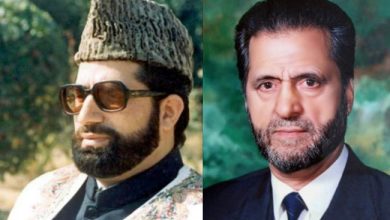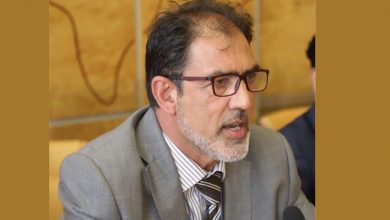What is Peace?

Written by: Franca Colozzo
Word often abused, violated, soaked with blood, loved and despised by the improper use of force, peace stands as a harbinger of harmony and civil coexistence among all men. It is as precious as the water that quenches our thirst and like the bread that nourishes us, also a symbol of sharing resources. But to cultivate peace and to ensure that it is lasting, it is necessary to struggle every day to preserve it.
The ancient Romans used to say: “Si vis pacem, para bellum” (in Latin: “If you want peace, prepare forwar”), a Latin phrase of an unknown author, but very widespread among the proponents of peace. What do you mean by that? That we must arm ourselves in advance or devise strategies that discourage all attempts to usurp the right to peace from all men.
Knowing by experience the human nature and the cowardice that often characterizes human actions, it becomes peace only with a targeted diplomatic and strategic capacity. In simple words, since “Historia docet”, history teaches the evolution of the path of human civilization, sometimes made of evolutionary leaps, sometimes of retrocessions, one realizes that much depends not only on one’s historical-cultural roots , but above all by the current educational system and by the objectives to be achieved in terms of tolerance and peaceful coexistence. I would call these parameters: Democracy, but the latter is not enough on its own to defeat the ignorance that seems to increasingly lurk in our social systems because of the too rapid dissemination of information, often not conveyed correctly and sometimes stupidly.
Social media can be a double-edged tool: on the one hand they convey information at the speed of light; on the other hand, they often send information of low cultural significance to meet the needs of the dominant, financial, political, etc. power groups. Suffice it to say that before 1990 all information on a global level traveled slowly, before the advent and birth of the World Wide Web (1991). Indeed, it was then that, at CERN in Geneva, the researcher Tim Berners-Lee defined the HTTP protocol (HyperText Transfer Protocol), a system that allows a hypertextual, non-sequential reading of documents, jumping from one point to another using the use of references (link or, more properly, hyperlink). A great revolution that certainly allows us connections with the world, where previously it was only a strategic security tool limited to international powers.
But then? We did not see a positive reflection of this on peace and on interconnection with humanitarian purposes. We should therefore move on to an epochal turning point in the current technological society to ensure that the network becomes an even more valid instrument of knowledge, an incubator of it, understood in a global sense without divisions between races, religions, gender according to the dictates of Human Rights , at the base of the UN itself.
The project of “Divide et impera”, Latin motto (“Divide and conquer”), with which we want to mean that the division, the rivalry, the discord of the subject peoples is good for those who want to dominate them, unfortunately today it is more than ever implemented by the powers imperialistic. Just think of the various walls hypothesized (from Trump to Mexico), or made to block the flow of migrants (Europe), to the rejections made at sea of masses of desperate people on boats and the massacre that leaves us appalled since the “Mare Nostrum”, the Mediterranean once cradle of civilization, today it has become a sepulcher of miles of poor shipwrecks.
Today that the holy month of Ramadan begins for the Muslim world, celebrating among men, together with fasting, peace and brotherhood, pillars of Islam, we should reflect on all the intolerances that still dominate the world and seek to ensure that interreligious dialogue becomes the driving force of universal peace and love. Pope Francis preaches this from the seat of the Papacy of Rome, but how many Christians follow him if his appeal remains unheard? We should ensure that all men of good will build a rainbow of light, an interreligious and intercultural bridge, leaving behind tribal odes or partisan interests.
A small spark of light (reaching an agreement for the ceasefire in Gaza) lit up on Monday 6 May in the Middle East, thanks to the mediation of the UN and Egypt. We hope that this truce will last even in view of the many deaths on both sides, mostly Palestinians. But other outbreaks of war should be turned off and I am referring above all to Syria, the battleground of the superpowers and not only, to Yemen, to Libya, not to mention Venezuela and the dozens and dozens of conflicts forgotten by the world or embers burning under the ashes, such as in Kashmir.
Unfortunately, until the UN fully fulfills the function to which it has been called and will leave power to the superpowers, often in the grip of the intemperance of the men who lead them, the world will not see the coveted peace. It is the economic interests of the warlords, the intensive exploitation of resources, the plundering of the riches of Africa and of countries rich in raw materials, the prevarication of man over man, the questions underlying past and modern conflicts (I quote for intellectual honesty the deportations of slaves from Africa to America and European colonialism, which caused so much damage to the current world geopolitical order). Without going into detail, because a geopolitical treaty would be needed, I think to conclude that as long as factors linked to a purely consumerist and self-centered vision come into play, there will never be peace in the world. It is well known that winners get the wagon and speak badly of the vanished. This has always been the case (I remember the effects of the imperialism of the great Roman empire on our culture), the subjection of many peoples or the lack of knowledge of the devastating effects of the lack of humanity, of tolerance, of trust in others.
The populism that many European countries are facing is the result of a senseless campaign aimed at pointing out the migrant as the cause of all the current problems generated by an unprecedented economic crisis after the devastating long wave of the 2008 American crisis.
To conclude, I believe that Peace organizations like INSPAD must join forces and press on the UN. Certainly the mass of people and ideas will create a tsunami of change. I must give INSPAD the right to represent a valid and growing connection and to Dr Muhammad Tahir Tabassum the ability to manage this effort for peace in a targeted manner. Certainly, in the less cohesive world context, a bright future is looming for the great Pakistani people to whom I wish a bright future.





